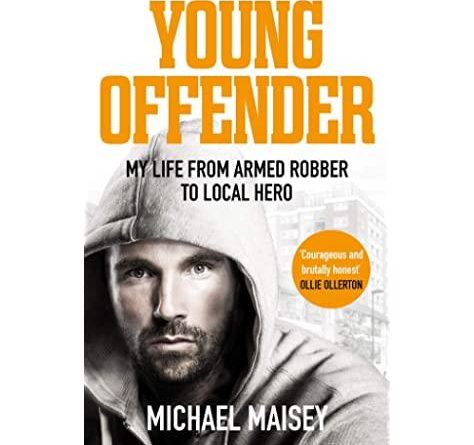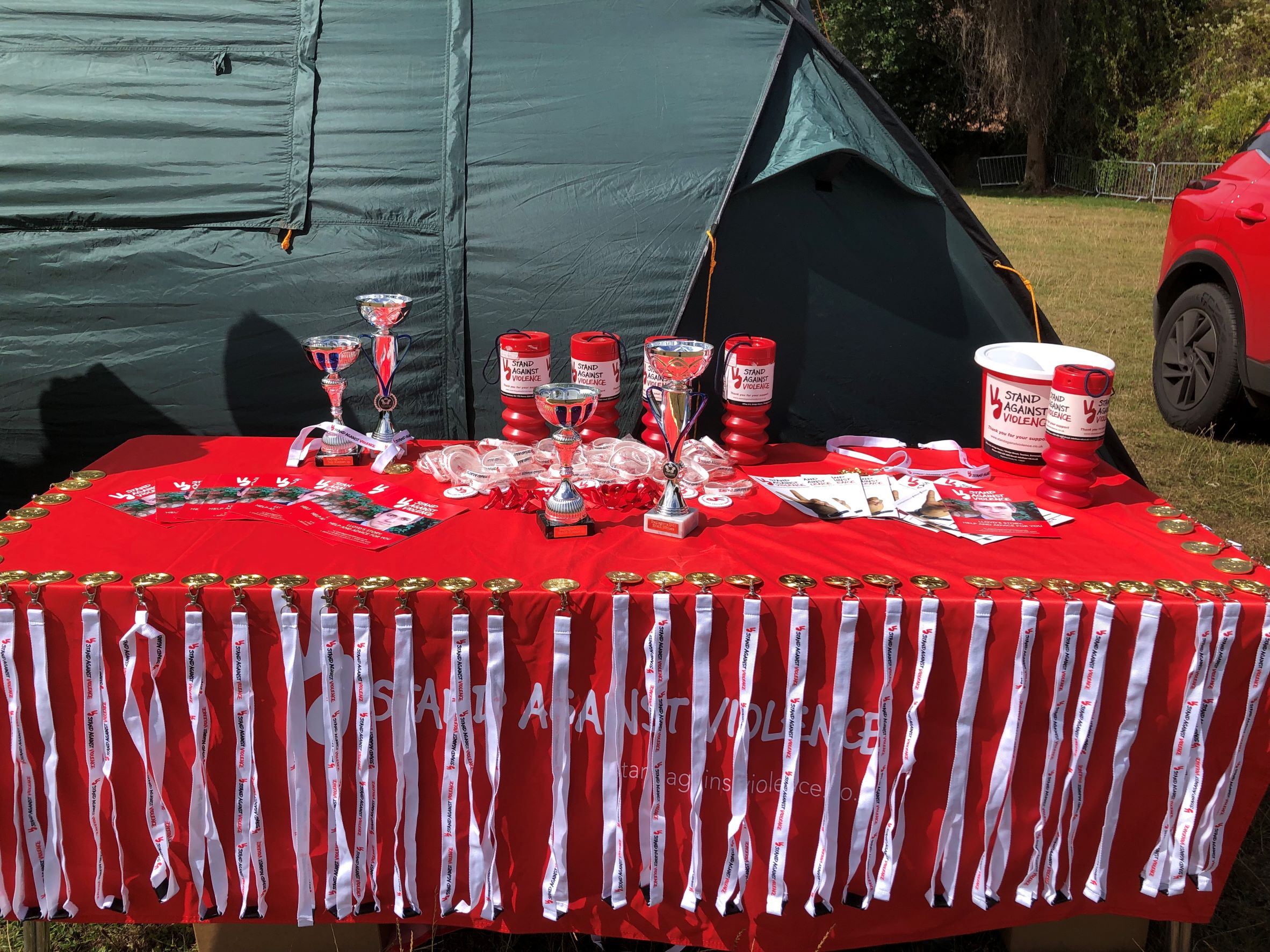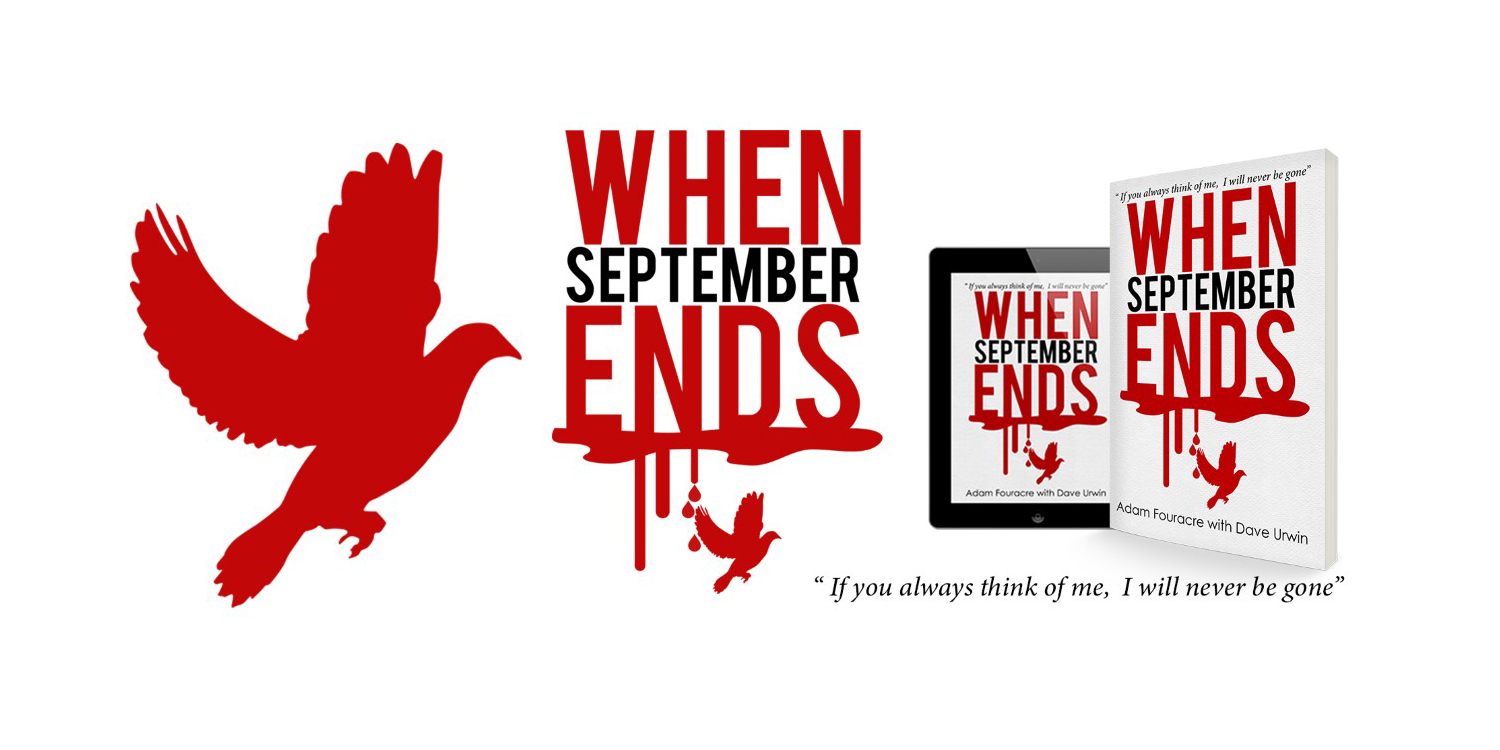An Interview With Michael Maisey - Life From Armed Robber To Local Hero
Tuesday 27th October, 2020

Michael joined a gang while still in his teens and after an attempted armed robbery he was sent to the notorious Feltham Young Offender’s Institute. He saw this as a badge of honour, and knew he would get more respect as a tough guy when he came out, but the experience of being in prison gave him the first signs that this was not the life he wanted to lead. A couple more spells inside, coupled with a growing alcohol dependency, meant there was only one way his life was heading. Unlike some, he made the decision to change before it was too late.
Change is possible. If you’ve read Adam’s blogs about his meetings with Jay Wall, one of Lloyd’s attackers, then you will already know this. When I thought about Jay’s early years I was reminded of a book I read last year, which is ‘Young Offender.’ It tells the story of what can happen to a young man who makes the wrong decisions. What leads to those decisions being made? Michael was not born as an armed robber or an alcoholic, and at the current point in time he has not been in a fight or touched a drop of alcohol for over a decade. During the course of our phone conversation this morning I saw more and more parallels between the work of Stand Against Violence and the work Michael does. We are not just trying to reach potential victims of violence but potential perpetrators, and Michael’s story is exactly what the latter need to hear….
For anyone reading this who hasn’t read your book, can you summarise what it was that led you towards a violent path and what the impact was on your life?
“Well, basically the environment I grew up in was one where the people closest to me hurt me the most. My mum was an alcoholic, my dad was a heroin addict, there was physical abuse and sexual abuse from another family member, and as a young kid I was thinking ‘If this is what the people I love do to me then what everyone else does is probably gonna be ten times worse.’ I created a kind of adapted version of myself as a survival mechanism, and I kept chasing that illusion when I first became an adult.
When I was about 12 I got taken under the wing of a group of lads who taught me how to fight and basically helped me not to get bullied at school, which had been happening up until then. Once I was able to give the bullies as good as I got I became more confident, but then I thought that was what I had to do to survive in life, so I got more and more violent.”
The turning point for you, as it is for so many, seemed to be when someone showed they cared. In your case it was your mum, who had just got sober. What else inspired you to change direction?
“I’d hit emotional rock bottom. I was in prison for the third time, I was addicted to heroin and my life was going nowhere. I tried to hang myself in my cell, and it truly is a miracle that I was found before it was too late. The prison officer on night duty does his rounds and looks in the spyhole in your door just to make sure you’re still alive, and it probably takes 2 or 3 hours to get round all of the cells. If he’d started on the top floor, or if he’d started on the left-hand side of the floor I was on then I wouldn’t be here talking to you now. I was three doors from the right and he was starting his rounds at exactly the time I hanged myself. He saw me through the spyhole and they managed to cut me down before I died. There just had to be a higher power at work. I’m not religious but I believe in a higher power, which I do call God, and I pray every day.
My mum got a call to say I’d tried to take my own life, and she came to see me straight away. I was in the visiting hall with bruises around my neck, and there was my mum sitting across the table from me. She just said two words, “I’m sober,” and all of this emotion flooded out of me. I’d grown up in an environment where I couldn’t show vulnerability, or be honest about how I was feeling, and that’s how prison is too, but I just sat there and couldn’t stop crying. At that moment I felt like for the first time in my life there would be an adult who had my back, and I also knew the tough guy I showed to the world was just an image. Underneath was still the same frightened child.”
Can you tell me a bit about your work in Feltham and other prisons. You’ve spoken about the overwhelmingly positive reactions you’ve had, but do you get negative reactions too? Are there people who seem reluctant to change? What would you say to someone who seems intent on continuing down a violent path?
“I’d say ‘Carry on, mate.’ I’ll tell you why. If someone feels like I want them to change more than they want to then they’ve got all the power, so I have to convince them they need to change. Imagine someone’s trying to sell me a mobile phone – I would just say ‘I’ve already got a phone.’ If my phone was broken, then I’d need to get a new one. I’d say to that person who didn’t think their life was broken ‘You carry on if that’s what you wanna do. There are plenty of people here who want to change, and if you don’t then I’m wasting my time on you. I can tell you though, that if you carry on the way you have been there are two possible outcomes – you’ll spend your life in prison or you’ll be dead.’ Someone might think that I’m there to try and force them to change, and that they have power over me if they say they’re not going to, but when they realise I don’t need them to change in order to feel like I’ve succeeded but I genuinely want them to for their own sake it becomes a different dynamic.
I believe these guys need to hear from men like me who have walked the same path they’re on, just to let them know that there’s nothing glamorous about their way of life. I say that because I can go in to somewhere like Feltham, talk to violent young men and know what it’s like to stand in their shoes. They need to know, through hearing a story like mine, that there is another way. It’s a better way, and it is possible to change. The difficulty with it is that I don’t have an unlimited pot of money, and I can’t do it forever with no funding because there are travel costs when I go and do these things, and it can be hard to obtain funding because of my past. There’s still a stigma that comes from being a former armed robber, and some of the funding bodies doubt the impact I could have, but young offenders need to hear it from someone who’s lived that life and become a different person.”
A really interesting point you made in another interview was how little is done nowadays in terms of working on young peoples’ character. Do you see this as a big contributing factor in the increase of gang culture and violent crime in the UK?
“I did touch upon this in an interview with Sky News, and it’s really interesting. Way back in history, there was always an initiation for a boy where they would learn from the elders in a tribe what it takes to be a man. They would be taught honour, pride, respect, respecting women and all of these important traits, and that’s disappeared from modern culture. I think we’re beginning to see the repercussions. Another important thing to remember is during World War I and World War II we lost almost a whole generation of men, and so a lot of children grew up without a male role model, so then they would grow up and have children of their own but they wouldn’t have had that initiation, so it would be like the blind leading the blind.
I think we need to bring this back. I didn’t have that when I was growing up and I can see the impact it had on my life. A lot of the lads you meet in prison would be the same. Young people need guidance; that’s as true now as it always has been throughout history.”
When you were on ‘SAS: Who Dares Wins’ you held back during a boxing challenge because you didn’t want to give your previous violent tendencies a chance to resurface. Do you ever find yourself having to do similar in day to day life?
“The first thing I worked on after I got sober was my anger. I did a lot of work trying to find out how I could stop resorting to violence, and I think four years after getting sober I was convinced I would never be in a fight again. I’ve been sober for 13 years now, and I’ve been true to my convictions about fighting. That was why I didn’t get through in ‘SAS: Who Dares Wins.’ I think the producers of the show looked at my past and thought it would make for entertaining TV to see this former armed robber and violent thug fly into a rage, and they were pretty disappointed when they got the opposite.
I made the decision when I was paired with that guy who kept knocking me over that I was going to lose the fight, and I was told that was weakness, but actually it’s really hard to not fight back when a guy keeps throwing haymakers at you. I got knocked down several times and I kept getting back up. The instructors wanted the red mist to descend and for my fists to start flying but it didn’t happen, and soon afterwards I was told I would be leaving. On the day that episode was shown they put a post out on Twitter saying something like ‘Tonight on SAS: Who Dares Wins, the weak shall perish.’ I just thought to myself ‘What kind of message is that sending out to young lads?’ TV is all about the ratings, and I told them stories on camera about how I’d turned my life around but it didn’t fit with the narrative of the show, which is that they are the heroes who take broken people out of their comfort zone and put them back together again. They couldn’t believe I’d not touched a drop of alcohol in 11 years, not even at Christmas. I guess that was why they wanted me to lose it, so there was something to work with, and that’s really bad. Having said that, I do think some of the people who go on that show really do get a lot out of it, and it’s a very positive experience.
It’s a very dangerous message to put out there that you are weak if you choose not to be violent, and it’s the opposite of what I’m about nowadays.”
The ultimate goal of Stand Against Violence is to influence future generations to choose non-violence and to massively reduce the amount of violence in society. How achievable do you think this is?
“I do have a lot of hope, and my story is living proof that change is possible. I don’t want to be famous or anything like that, but I think more coverage needs to be given to people like me and what I’m trying to achieve. Young people are being given the wrong messages nowadays; really they need to be hearing stories about people who overcome adversity, who turn their lives around and who are living the kind of life that they should be aspiring to. Some young people get that from their parents, but some don’t, and so they look elsewhere for guidance. Gang culture gets glamorised, and so does a lot of superficial nonsense. What I was talking about earlier about the initiations for boys when they become men, that’s exactly why I formed the CIP (Change is Possible) project. I’m just trying to use my lived experience to help other men become the best version of themselves, after I spent a number of years trying to do the same.”
This is exactly why Stand Against Violence do what we do, because we believe that change is possible. Michael Maisey chose non-violence, when violence had become all he knew. If he can change then it is possible for anyone. To find out more about the CIP project, and about Michael’s ‘Young Offender’ book head to: - https://www.michaelmaisey.com/
By Dave Urwin, Community Funding and Development Officer, Stand Against Violence



